- News
- Reviews
- Bikes
- Accessories
- Accessories - misc
- Computer mounts
- Bags
- Bar ends
- Bike bags & cases
- Bottle cages
- Bottles
- Cameras
- Car racks
- Child seats
- Computers
- Glasses
- GPS units
- Helmets
- Lights - front
- Lights - rear
- Lights - sets
- Locks
- Mirrors
- Mudguards
- Racks
- Pumps & CO2 inflators
- Puncture kits
- Reflectives
- Smart watches
- Stands and racks
- Trailers
- Clothing
- Components
- Bar tape & grips
- Bottom brackets
- Brake & gear cables
- Brake & STI levers
- Brake pads & spares
- Brakes
- Cassettes & freewheels
- Chains
- Chainsets & chainrings
- Derailleurs - front
- Derailleurs - rear
- Forks
- Gear levers & shifters
- Groupsets
- Handlebars & extensions
- Headsets
- Hubs
- Inner tubes
- Pedals
- Quick releases & skewers
- Saddles
- Seatposts
- Stems
- Wheels
- Tyres
- Health, fitness and nutrition
- Tools and workshop
- Miscellaneous
- Cross country mountain bikes
- Tubeless valves
- Buyers Guides
- Features
- Forum
- Recommends
- Podcast
feature
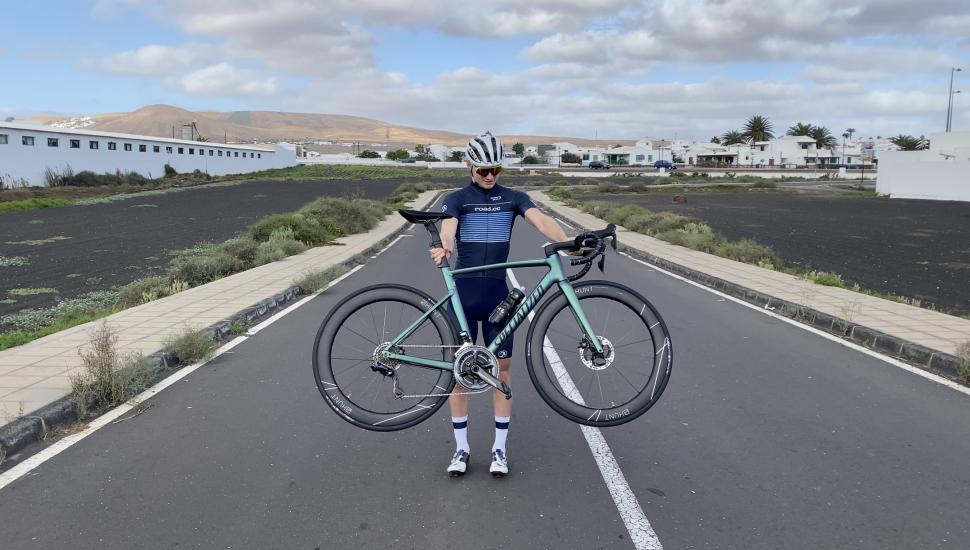 2022 how to ride in the wind
2022 how to ride in the wind Beat the wind on your bike: 7 route planning hacks to increase average speed and make windy rides more enjoyable
Riding in strong winds can be a miserable and even dangerous experience without careful route planning. Even without officially named storms the UK is a windy place, and if you find yourself on a cycling holiday on one of the Canary Islands or somewhere else extremely windy, that's a whole other level.
To make windy rides more manageable (and even fun, dare we say) we've got a septet of wise tips to help you plan your route so you're not battling quite so many headwinds, and help you to increase your average speed, cycling enjoyment and safety.
How to plan a route
Before getting into our seven top tips, these are some golden rules for planning a route on a windy day to still make it a great day on the bike.
Check the forecast
First, you need to know where the wind is coming from, so check your preferred weather sites, such as the BBC or Met Office. It is important to know which direction the wind is going as you want to plan your route such that you're riding home with the wind (a tailwind). If you take nothing else from this article, the golden rule is that you start by riding out into a headwind and then come home with a tailwind.
Something to consider when riding in the wind is that the weather can change quickly. This could work in your favour with the wind dropping while on your ride, but could also mean a ride that starts dry can soon turn into heavy rain. If the wind is moving fast, so is any accompanying rain, hail or snow.
Wear suitable clothing
Due to the unpredictability of the British weather, particularly on windy days, make sure you're wearing suitable clothing. The best windproof cycling jackets will stop the wind so that it doesn't cool you down too much. You should also consider carrying an emergency rain jacket just in case (check out our picks of the best waterproof cycling jackets to see your options).
Hide from the wind
Once you've decided where you want to be heading, you want to think about how you can hide from the wind.
When riding into a headwind, long, straight, open roads are going to be less than fun. Choosing a route through lanes, wooded areas and high hedges will break the worst of the wind.
The route itself
When riding out into a headwind, you need to make the 'out' leg a little bit shorter than the return, if you're looking for an evenly split ride and want to get a certain number of hours done. Riding into the wind for 30 miles is going to take a lot longer than riding the 30 miles home.
Some roads might not look like much on a regular map, but when using something like komoot, Trail View or Google Street View, you can see how flat, open and exposed they are. These are the roads you want to avoid if there's going to be a headwind, but make ideal conditions for a maximum tailwind advantage!
Once at the halfway mark, you don’t want to spend too much time going across the path of the wind. Crosswinds are excellent for watching a dull sprint stage on TV because they often split up the race, but can be scary if you're not used to riding in them.
Seven route planning hacks
1. Remember to eat!
When you're battling those headwinds, reaching for a bar in your back pocket is often the last thing on your mind. Even though you're going to be travelling at lower speeds, you're going to be burning more energy as you're having to put in more effort when riding into a headwind.
> How to eat right for sportives and long rides
Fuelling properly is essential for longer rides as it will help you on the way home.
2. Get aero
Getting aero means the effort to ride faster is exponential.
We recommend tucking down and bending your elbows, wearing one of the best aero helmets and opting for a close-fitting jacket that isn't going to flap in the wind.
3. Don't take your deepest wheels
To make riding in the wind safer, switch your deepest wheels for some shallower rims. While deep wheels often make you go faster (and sound nice too, the most important bit of course), they can be dangerous in high winds; particularly in cross-winds. You don't want to be blown across the road!
> Are expensive carbon road bike wheels worth the money?
4. Go with a friend
There's nothing worse than battling a headwind alone, so planning a ride with other people means you can share the workload. Riding with other people won't only motivate you to get out, but also makes you ride faster too.
Group riding also means you can form mini echelons which help protect you from the wind whilst sharing the work, meaning you can save more energy for the return leg.
5. They're great for training
While headwinds don't sound appealing, they're great for training. In terms of the increased effort and power needed to keep consistently turning the pedals it's like riding uphill, meaning you can add intensity to flatter rides and get similar benefits as you would on hills.
Headwinds are also great for interval sessions, particularly longer intervals, as you can ride at a consistently high power. Timed intervals can be done in less distance.
6. Save something for the tailwind
Tailwinds often make riding into the headwinds worth it. It's easy to get carried away in a tailwind feeling like you've found the form of your life, but tailwinds won't be as enjoyable if you've gone too deep into a headwind for the rest of the ride.
7. Stay at home and hit the indoor trainer
If all else fails and it really is too windy to head out, we advise staying home and hitting the indoor trainer instead.
> Check out the best turbo trainers here
Cycling in the wind isn’t always fun, and can also be dangerous. Pay attention to any weather warnings issued by the local forecaster. Unless you really need to go out in gale-force winds, it might be the smart choice to reschedule your ride.
What's the windiest place you've ever ridden? Let us know in the comments section below...
Emily is our track and road racing specialist, having represented Great Britain at the World and European Track Championships. With a National Title up her sleeve, Emily has just completed her Master’s in Sports Psychology at Loughborough University where she raced for Elite Development Team, Loughborough Lightning.
Emily is our go-to for all things training and when not riding or racing bikes, you can find her online shopping or booking flights…the rest of the office is now considering painting their nails to see if that’s the secret to going fast…
Latest Comments
- lonpfrb 39 min 26 sec ago
Similar to my Air Horn, used for frightening HGVs whilst sustainably powered by a hand pump... 60psi is enough to sound several bursts!
- lonpfrb 1 hour 11 min ago
If this government were truly interested in change, and joined up government between...
- lonpfrb 1 hour 33 min ago
It's easy to remove the pipe from the fasteners which are C shaped so able to hold but not trap the pipe. Filtering through traffic is then...
- brooksby 1 hour 41 min ago
And you know that because...? I'd read this elsewhere and was surprised to read the story on here - hadn't thought they were "cyclists".
- AidanR 1 hour 51 min ago
85kg weight limit?! I come in well under that, but I'm not sure I'd trust a frame with a limit that low.
- wtjs 1 hour 51 min ago
What was on offer only 2 weeks ago was either 'world' for £20 or tiny areas such as 'Blackpool area' for £5 each or something. You couldn't just...
- Simon E 2 hours 14 min ago
“fastest, lightest, and most durable road tyres yet” Yeah right. "Strong, light, cheap. Pick two."
- David9694 2 hours 37 min ago
Surely a penalty notice will have been delivered by now, which will state where the car is parked?
- Bigtwin 6 hours 21 min ago
A smidge of £8.5K. Seriously. Someone needs to have a strong coffee.
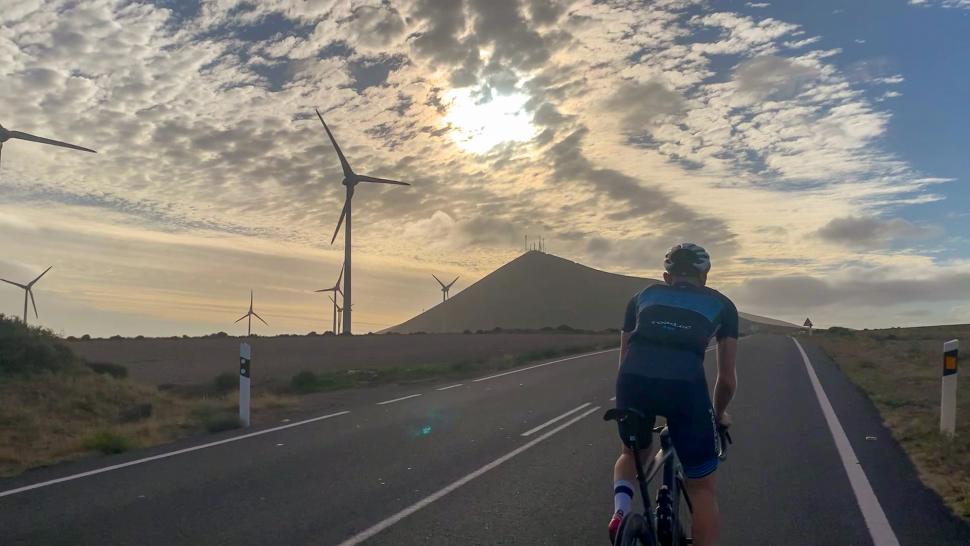
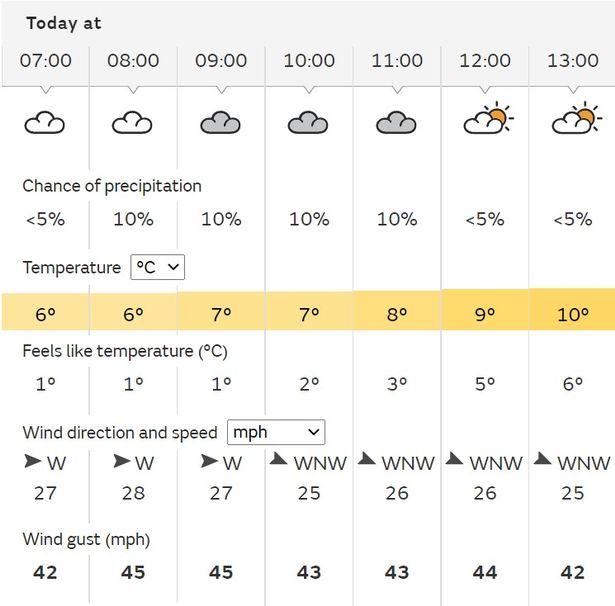
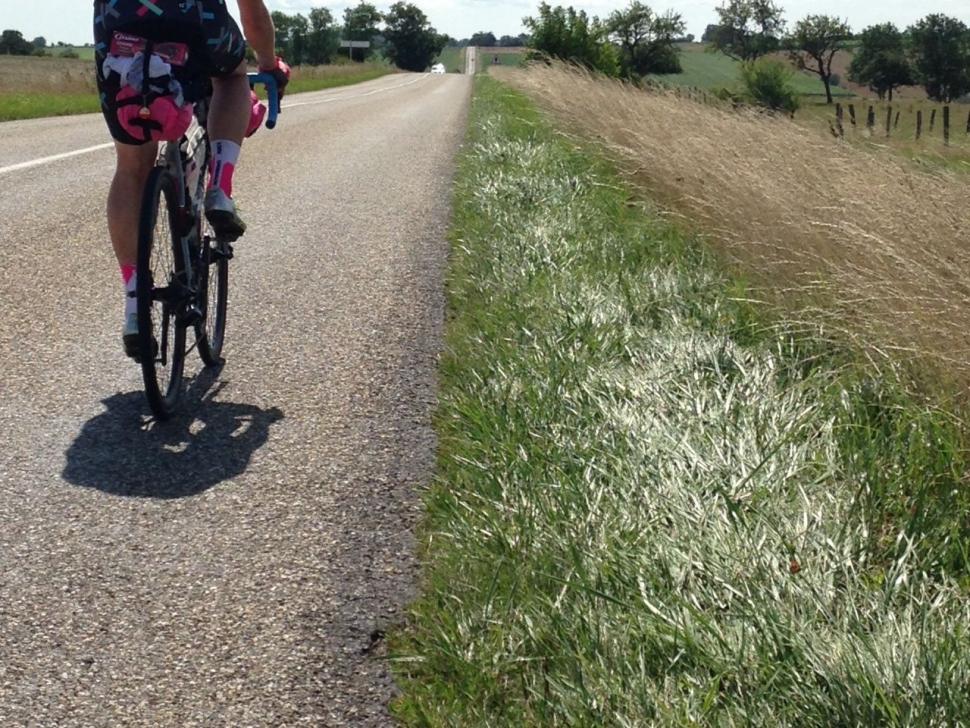
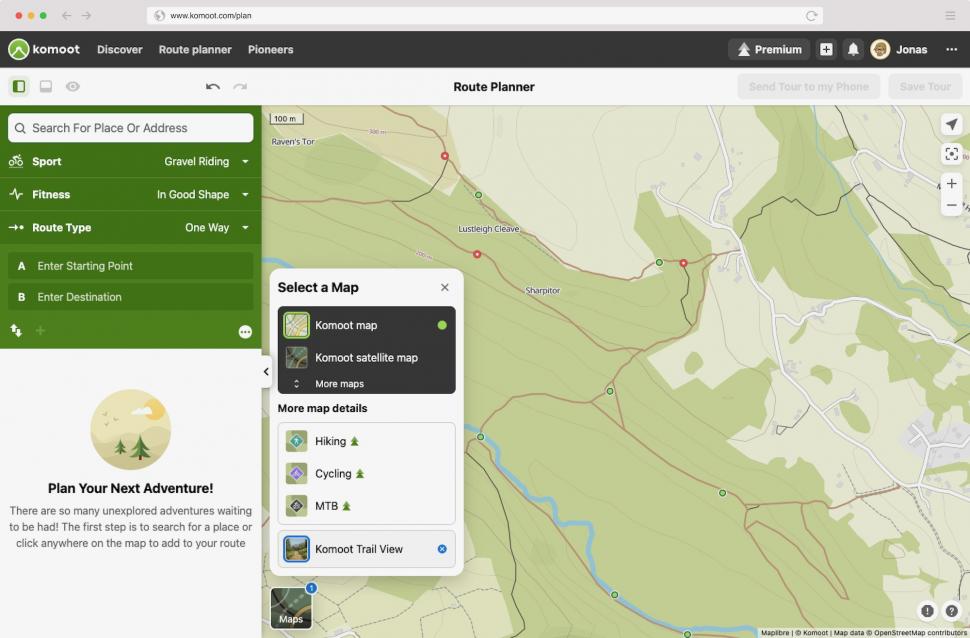
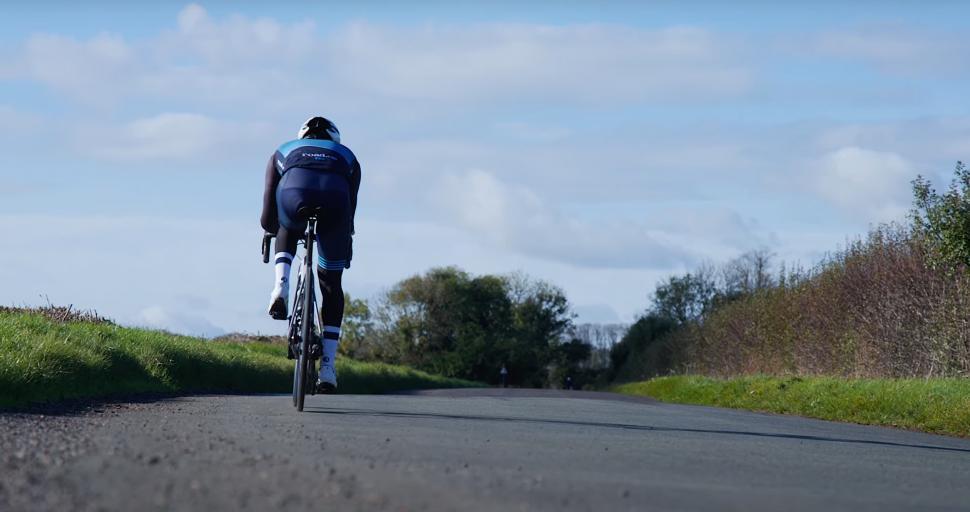
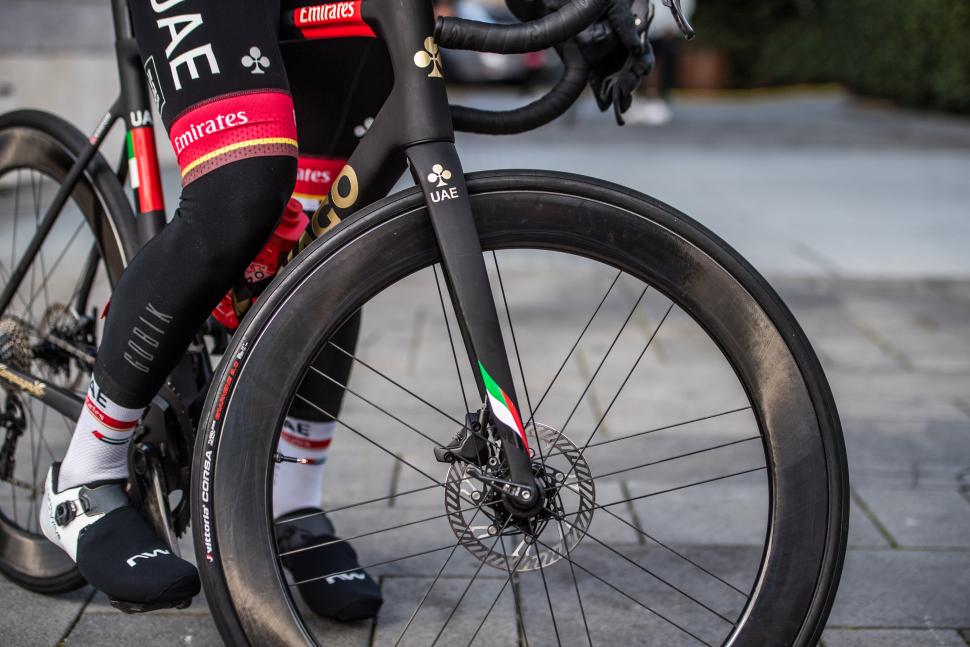
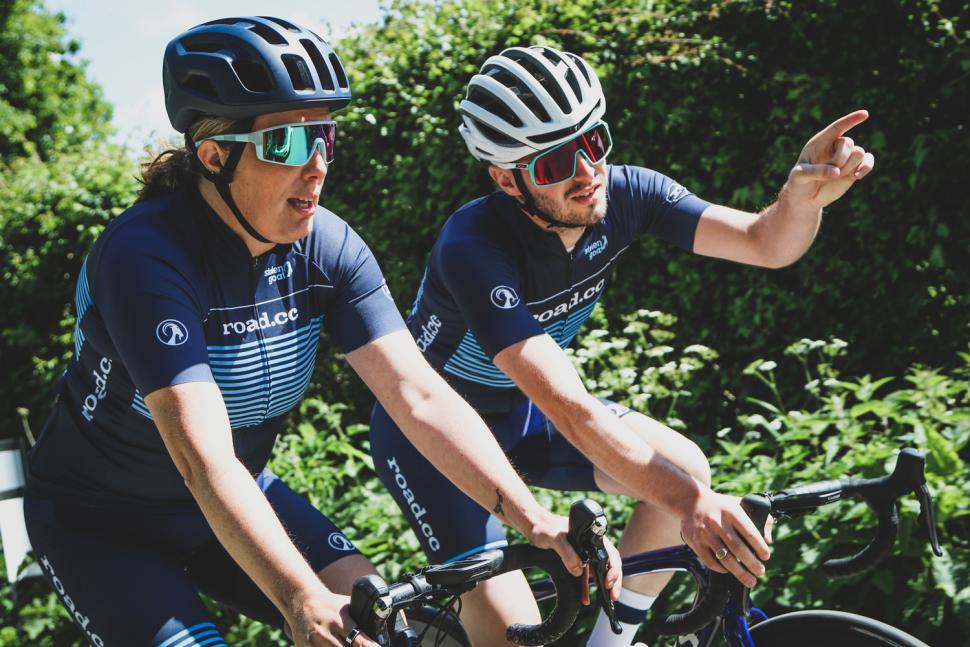
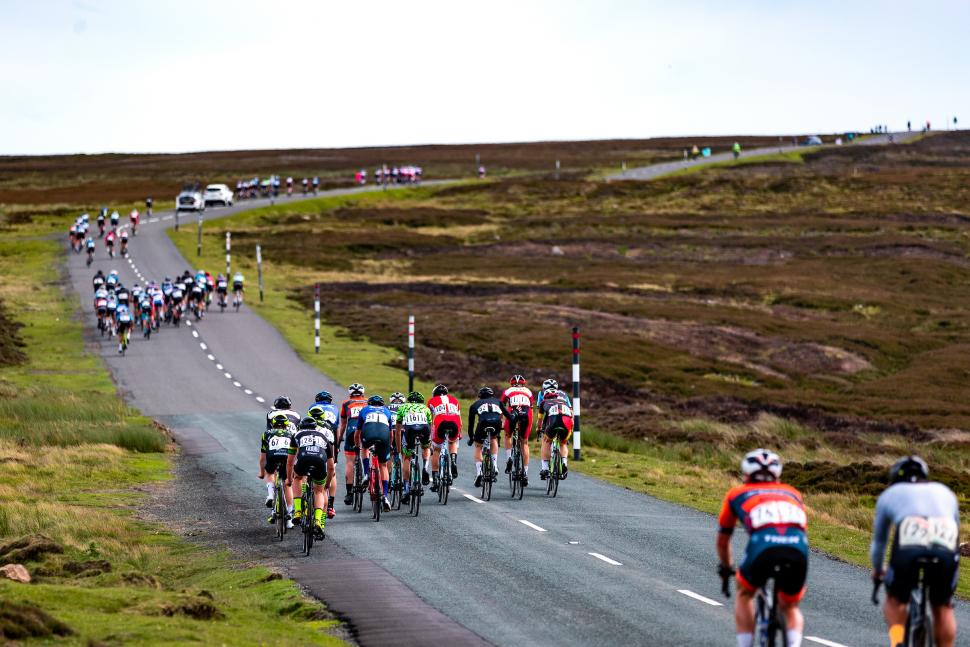
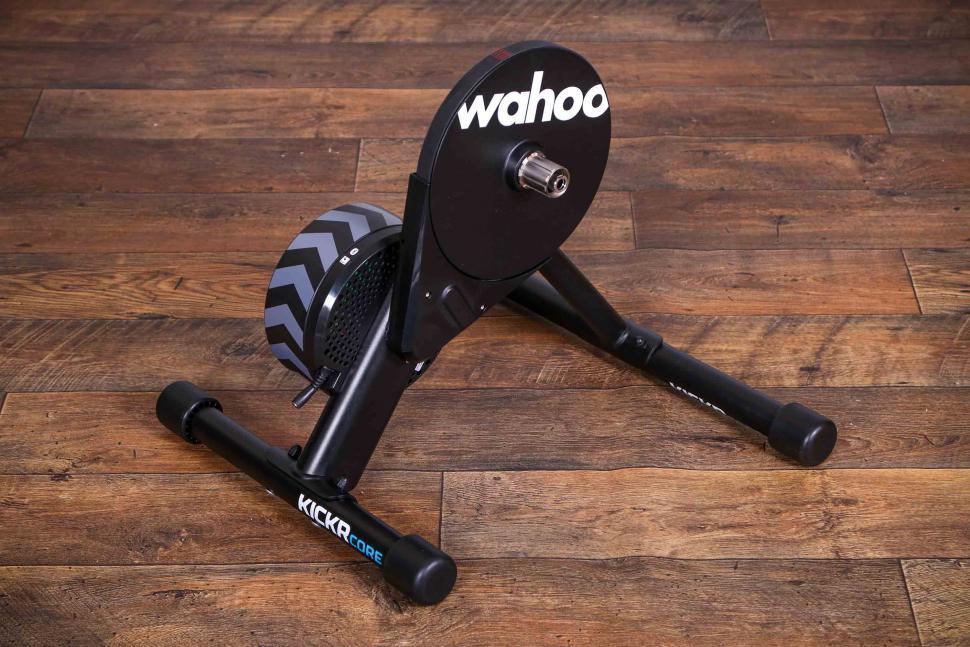
Add new comment
20 comments
I live near to a train station, so on a windy day I can take the train in the appropriate direction and get blown home (Assuming there's no rail strike of course).
(Assuming there's no rail strike of course).
Poor article, obvious stuff. I was expecting to see.
1. Ride out into a headwind to through hills where possible. Ride the flat back home. Hills really break up the wind.
2. Often the wind will 'back' or 'veer' during the day and rotate around the centre of low pressure. If you make your ride CW or CCW you can take advantage of this. In extreme cases have almost a tail wind all day. Or a headwind for training purposes
3. Wind is hugely influenced by the sun. It's usually much calmer at night than midday. Early starts to get you somewhere with a tailwind home (or conversely a headwind start at midday) gives you a net tailwind.
^ Proper stuff
Surely the whole point of helpful guides is to be helpful so, IMO, the team have hit the mark as well as starting a discussion. Yes, most seasoned riders will know many of those tips but I would always like to think that there is still room for reminders &/or improvements...and for those starting out then this type of guide can save them the grisly experience of learning the hard way (with the associated risks of trying to stay upright &/or giving up cycling). Keep on keeping on!
Fair enough, just be nice to see more depth. Typical lazy feel.
It's just a light article on a website with the possible aim of increasing engagement and encouraging user comments in order to add to it. It's hardly Frost vs Nixon.
I live in the fens, so I am struggling with some of the concepts in this piece. In particular:
wooded areas
high hedges (or indeed hedges of any height)
I also don't know where to find roads that are anything other than long, straight and open.
Just south of Lincoln
Thanks, now I just need to ride 50+ miles (into a headwind this week!) to find a sheltered road to avoid the headwind .
.
I have to say as someone who does ride in the wind quite a lot, I am not conviced by the idea of starting directly into wind. I actually prefer a handful of miles with a tail or cross wind to get warmed up before I turn into wind.
And on the subject of deep section wheels, I would say ride the deepest you can control in the conditions as they can make a huge difference in a headwind.
For some reason I read Spalding and thought Sleaford You have my sympathies
You have my sympathies 
If the forecast for the weekly group ride is breezy then I whack the gpx in Windy.
Com website ( not sure if it's a premium feature or not as I'm a premium member) and it pops it in the map with the wind forecast..... I've been successful to plan a more shielded route that way.... Sadly this time of year, trees have shed leaves and hedgerows have been trimmed...so a lot of wind breaks are gone
Another technology solution to "if life gives you lemons, make lemonade" is the "KOMinator" app, simply move the map to your location or where the route is, hit the button, it takes the local Strava segments, the wind speed & direction (now or up to 7 days in the future), and then marks them red to green depending on the headwind/tailwind effect. Clicking on one shows the mean wind effect.
Opportunities for some Strava gold to compensate for the "free resistance training" you're getting in the other direction.
Cheat!
Yet another cycling myth - everyone knows that tailwinds don't really exist
I beg to differ, I've seen them hundreds of times - blowing along all the buggers coming towards me.
If you see someone cycling faster than you, then obviously they must be on an e-bike. Either that or they're some pro cyclist using the latest performance drugs (and a hidden motor). Beside, I was on a rest day, my tyres are at the wrong pressure and the brakes are rubbing.
And clearly they were just setting out for a 10k cafe spin whilst I was in the 96th mile of a century.
and my skinsuit is in the wash
Couldn't they be a pbu? After all, they mostly do 30 mph everywhere whilst learning to be fluent in English, coaching bikability pupils to ride in the gutter, and being super-courteous all at the same time.
I recall an epic cycling adventure with my older brother to the coast (camping for a night) into the teeth of a constant headwind. Don't worry, my brother told me, rehearsing a lesson about differential heating of land versus sea causing the coastal wind to blow landwards, tomorrow we'll have it on our tail.
Guess what - teacher was wrong!
Try the road from Tarifa ('windsurfing capital of Europe') towards Cadiz. Best I've ever experienced.